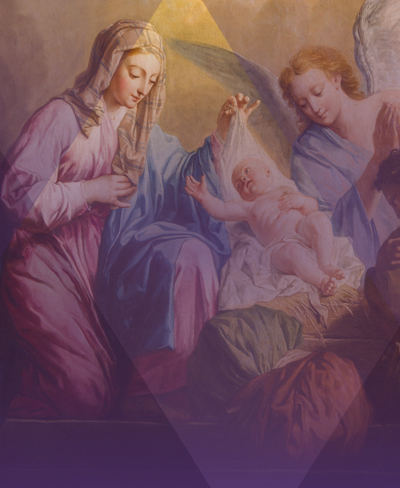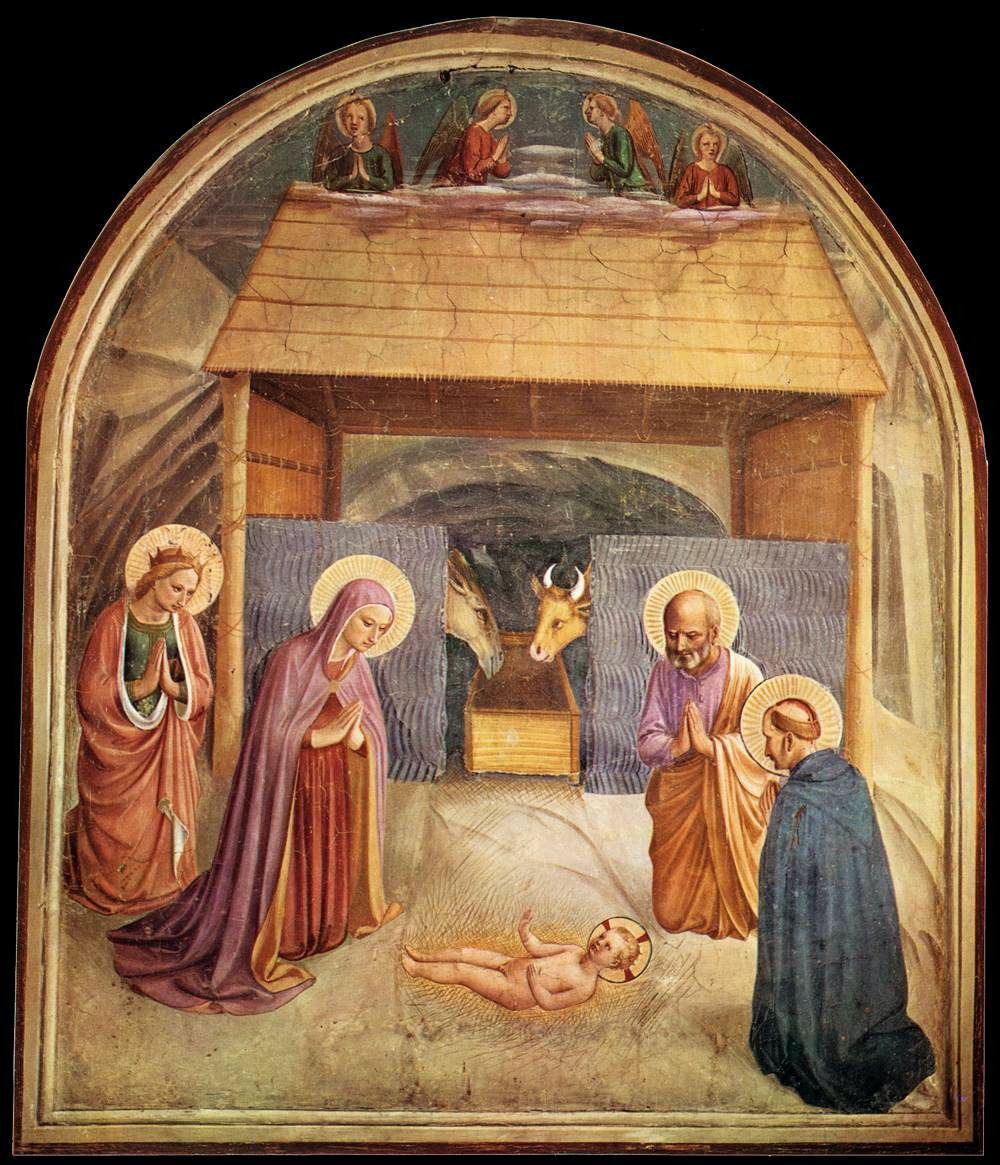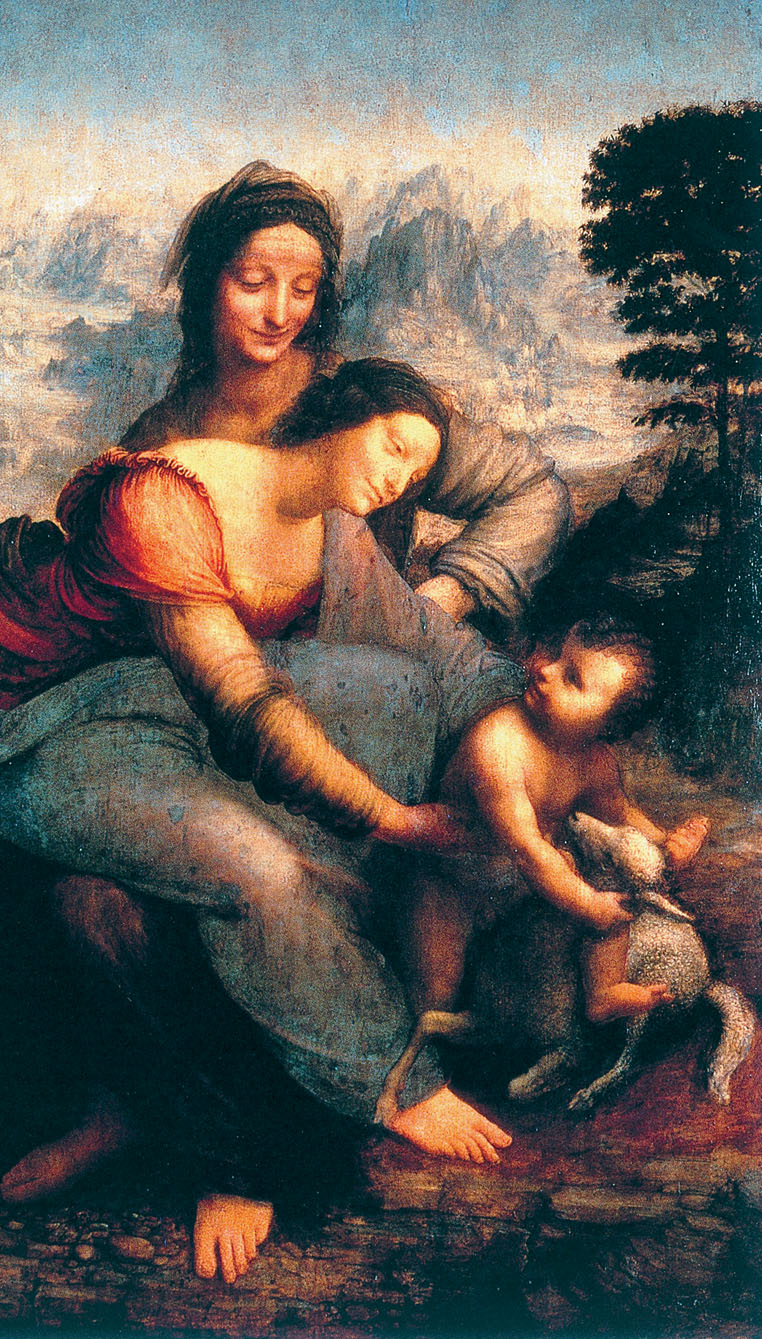
Brothers, see Jesus in the manger, see him in the lap of his virgin mother, see him sucking at her breasts, crying in the cradle, see him wrapped in swaddling clothes; see him also, if I am not mistaken, surrounded by the hay in the stable. This is spiritual milk; these are the banquet foods I promised you for this our feast day. Suck on them sweetly; think on them with tenderness. Nourish yourselves interiorly with a drink of this milk. But this is for children. What may we do for the youth, what for the elders? The youth are strong; elders have lost the heat of the flesh. If therefore you are a child, suckle on Jesus in the stable. If you are strong, imitate Jesus on the gibbet of the cross.
St. Aelred of Rievaulx – The Liturgical Sermons
When the Maker of time, the Word of the Father, was made flesh, He gave us His birthday in time; and He without whose divine bidding no day runs its course, in His Incarnation reserved one day for Himself. He Himself with the Father precedes all spans of time; but on this day, issuing from His mother, He stepped into the tide of the years. Man’s Maker was made man, that He, Ruler of the stars, might nurse at His mother’s breasts; that the Bread might be hungry, the Fountain thirst, the Light sleep, the Way be tired from the journey; that the Truth might be accused by false witnesses, the Judge of the living and the dead be judged by a mortal judge, Justice be sentenced by the unjust, the Teacher be beaten with whips, the Vine be crowned with thorns, the Foundation be suspended on wood; that Strength might be made weak, that He who makes well might be wounded, that Life might die. He was made man to suffer these and similar undeserved things for us, that He might free us who were undeserving; and He who on account of us endured such great evils, merited no evil, while we who through Him were so bountifully blessed, had no merits to show for such blessings. Therefore, because of all this, He who before all ages and without a beginning determined by days was the Son of God, saw fit in these latter days to be the Son of man; and He, who was born of the Father but not made by the Father, was made in the mother whom He had made, that He might sometime be born here on earth of her who could never have been anywhere except through Him.
St. Augustine – Sermons for Christmas and Epiphany
The Gelasian and Gregorian Sacramentaries give three Masses to this feast (of Christmas), and these, with a special and sublime martyrology, and dispensation, if necessary, from abstinence, still mark our usage. Though Rome gives three Masses to the Nativity only, Ildefonsus, a Spanish bishop, in 845, alludes to a triple mass on Nativity, Easter, Whitsun, and Transfiguration (P.L., CVI, 888). These Masses, at midnight, dawn, and in die, were mystically connected with aboriginal, Judaic, and Christian dispensations, or (as by St. Thomas, Summa Theologica III:83:2) to the triple “birth” of Christ: in Eternity, in Time, and in the Soul. Liturgical colours varied: black, white, red, or (e.g. at Narbonne) red, white, violet were used (Durand, Rat. Div. Off., VI, 13). The Gloria was at first sung only in the first Mass of this day.
The Catholic Encyclopedia
Though coming in the form of man, yet not in every thing is He subject to the laws of man’s nature; for while His being born of a woman, tells of human nature; virginity becoming capable of childbirth betokens something above man. Of Him then His mother’s burden was light, the birth immaculate, the delivery without pain, the nativity without defilement, neither beginning from wanton desire, nor brought to pass with sorrow. For as she who by her guilt engrafted death into our nature, was condemned to bring forth in trouble, it was meet that she who brought life into the world should accomplish her delivery with joy. But through a virgin’s purity He makes His passage into mortal life at a time in which the darkness was beginning to fail, and the vast expanse of night to fade away before the exceeding brightness of the light. For the death of sin had brought an end of wickedness which from henceforth tends to nothing by reason of the presence of the true light which has illuminated the whole world with the rays of the Gospel.
St. Gregory of Nyssa quoted in St. Thomas Aquinas’ Catena Aurea: Commentary on the Gospel of St. Luke



